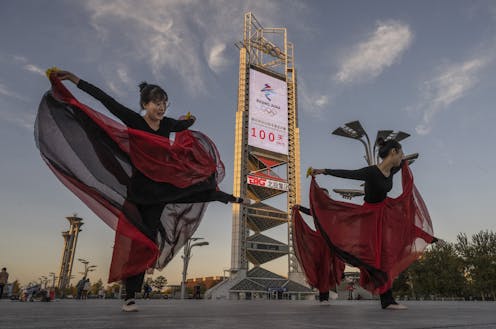Olympic Games are great for propagandists – how the lessons of Hitler's Olympics loom over Beijing 2022
- Written by Michael J. Socolow, Associate Professor, Communication and Journalism, University of Maine
 Will anodyne reporting from the upcoming Beijing Winter Olympics play into China's propaganda efforts? Kevin Frayer/Getty Images
Will anodyne reporting from the upcoming Beijing Winter Olympics play into China's propaganda efforts? Kevin Frayer/Getty ImagesOn the morning of Aug. 14, 1936, two NBC employees met for breakfast at a café in Berlin. Max Jordan and Bill Slater were discussing the Olympic Games they were broadcasting back to the United States – and...

















